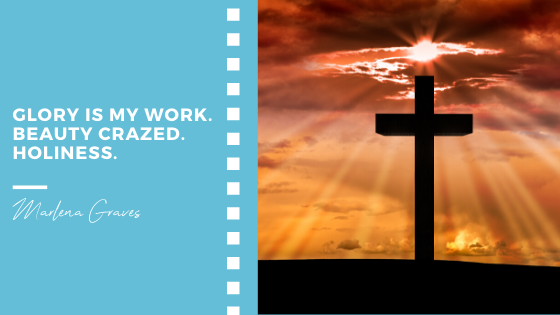Let us once more thoughtfully and prayerfully read our collect (from BCP):
O Lord, you have taught us that without love whatever we do is worth nothing: Send your Holy Spirit and pour into our hearts your greatest gift, which is love, the true bond of peace and of all virtue, without which whoever lives is accounted dead before you. Grant this for the sake of your only Son Jesus Christ, who lives and reigns with you and the Holy Spirit, one God, now and for ever. Amen.
This week, I read our Scripture passages alongside Mary Oliver’s book length poem entitled: The Leaf and the Cloud. These phrases from the poem clung to the walls of my mind : crazed by beauty and glory is my work.
In the Leviticus 19 passage God tells Moses, “Tell my people that I want them to be holy.” But he doesn’t stop there. Just to make sure they know what holiness looks like in everyday life, the LORD, through Moses, describes everyday holiness in their ancient culture. As we in the church know today it is an important thing to be holy, for as Hebrew 12:4 says, “without holiness, we won’t see the Lord.” We won’t see God. So what of holiness then and now?
The Lord tells them, when you harvest, when you reap the reward of your long hours of planting, don’t gather everything. Leave some for the poor and alien. And in verse eleven God tells the Israelites as well as us not to steal. Perhaps St. Paul was thinking of these verses when he told the Ephesians (4:28), “Anyone who has been stealing must steal no longer, but must work, doing something useful with their own hands, that they may have something to share with those in need.”
It seems to me from the verses in Leviticus that part of our aim in our work is make money to share with those in need. We have to keep that in the front of our minds. When we collect or reap our paychecks, we are to reserve some for the poor and aliens, or foreigners. And I don’t think questions like, “Do we give ten percent before or after taxes?” exemplify the generosity of God. Ten percent is a suggestion for the minimum. Just recently, I ran across this quote on a friend’s Facebook page, “Everybody wants to be righteous when they can afford it.” But God often calls us to give liberally—generously. God calls us to be righteous—to be holy—to be Jesus even when we can’t afford it—when it’s most inconvenient and painful. It is in those times that we most exemplify Jesus. Our actions show that they don’t stem from our own power and inclinations, but from God’s.
If you can afford to go to the university down the road, even with loans, you’re some of the richest people in the world—the school is so darn expensive. And I thank you for paying my family’s salary. Seriously. I wouldn’t be here if it weren’t for some of you. Yet, it is well documented that rich people, like you and me, give less than the poor—per capita that is. Poor people out-give us most of the time. Maybe it’s because they remember what it is like to be in need and what it was like for someone to save their necks just about the time they were about to give up. But lest I be guilty of doing what Leviticus 19:15 says and showing all partiality to the poor, let me say this: you don’t have to be poor to be generous—to give liberally. If we realize our spiritual poverty, that God saved and continues to save our necks, if we really come to terms with the fact that nothing we have is ours, not even our junior high and high school and for some—college educations and jobs and cars and communities and food and our minds and abilities too—all were given to us by God—then we’ll be crazed by the beauty and generosity of God.
That beauty and generosity of God induced craze will drive us to be liberal—generous with all we have. So then our lives will be characterized by “mi casa, es tu casa” as well as my food and clothing and vehicles and education and/or skills. It kind of reminds you of the early church doesn’t it? The early church, some throughout history, and even some of us today do embody the holiness God is talking about in Leviticus 19. But let us remember it’s a holiness flowing from love, for remember as Paul says in I Corinthians 13, without love—even our painful sacrifices are worthless. When we live such holy lives, glory is our work.
Surely these verses in Leviticus are places where we can stop for a while and linger in the compassion and love and kindness and wisdom of God. Left to ourselves, we don’t do what God commands us to for our own good and the good of others. Instead, we devise our own schemes for ensuring our own good. And that my dear friends leads to our own destruction and the destruction of others and even of the earth. As the Heidlerberg Catechism says, we are inclined to hate both God and our neighbor. So here as in other places throughout Scripture, the Lord lays it out for us and gives us the power, through the Spirit of Jesus, to be holy.
Our LORD says (and here is my translation), for goodness sake, yes for goodness sake, and so that you and everything around you will flourish: “Don’t lie or steal—even when you think doing so would help you or help you save face. Tell the truth and deal honestly. Don’t deceive or casually use my name. And please, don’t violate my name by making me look bad by leading a careless life within the kingdom. Be careful with me and others. I am God. The more you realize how wonderful and holy I am the less you dare do such things—because of your love for me. And by the way, I really want to know, do you love me?
And he goes on to say, (again in my own paraphrase of the passage), “Don’t exploit your friends or rob them. Don’t use them for your own advantages…to get ahead. Rather serve them so that they might have the advantage. Be others directed, like me. Love them. And pay people on time. Withholding pay when it is due others puts them in a bind. Think of them and their families. A few more things. Don’t be cruel to those who are in any way disadvantaged. Don’t curse the deaf knowing they can’t hear you. How cruel is that? And don’t trip up the blind by putting a stumbling block in their paths. For that matter, don’t play such games—the kinds many of you love to play with the lives of others—don’t pick on them. I’m talking to you whether you’re in junior high or you’re an adult. Those things are cruel and unlike me. I am not cruel. A few more things my dear children. Please don’t talk badly about anyone when they’re out of ear shot or even when they’re within earshot. And if someone is in danger, or going through a hard time in life and you find out about it, don’t stand by. For goodness’ sake, do something in my name. And don’t hate your brother or sister, seek their good. Don’t hold a grudge against a family member, a neighbor, or anyone in the body of Christ. If you want to look like me you’ll seek their good. You’ll do the hard work of forgiveness. If you want to be truly holy, then you’ll understand what I mean.”
Such a life, I believe, is a beauty-crazed life. One where glory is your life. Being holy like God and through the power of God—is a life that causes others to stop and look. They are staggered and become overwhelmed by the beauty and wonder of your life. Your life becomes a beautiful and fragrant flower growing in the most unlikely of places—a nuclear wasteland. It becomes an icon of hope, an icon of what is to come when all things are redeemed. An icon of Christ. It is a redeemed life. A God-crazed, a God-full life. A beautiful life, beauty crazed life. A glory full-glorious life. A holy life.
Brothers and sisters, glory is our work.
Amen.

